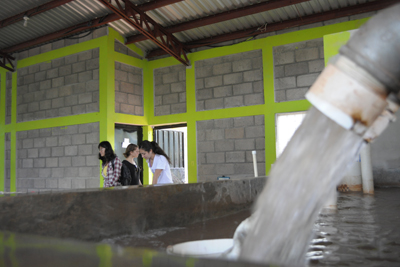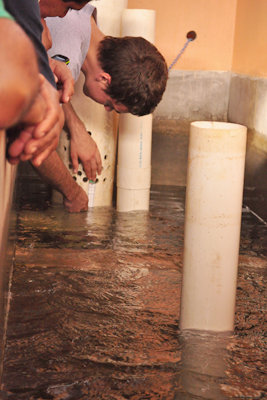AguaClara wins Katerva Award for urban design
By Anne Ju

For its work bringing thousands of people in Honduras safe, clean drinking water, Cornell’s AguaClara research team has been honored with a 2012 Katerva Award.
The Katerva Awards highlight the world’s most promising sustainability ideas and honor the best sustainability innovators, according to the award announcement. AguaClara, which designs municipal-scale water treatment plants, won in the category of “urban design” and was chosen from 51 finalists from around the world.
So far, AguaClara’s eight water treatment plants serve 30,000 people in rural Honduran communities, with more plant designs in the pipeline. Led by Monroe Weber-Shirk, senior lecturer in civil and environmental engineering, the team has developed a suite of water treatment technologies that produce clean water without the use of electricity or expensive, high-tech equipment.

AguaClara’s gravity-powered designs are scaled to the sizes of the communities they serve and are constructed using local materials and labor. This makes the technology simple for the community to build, use and maintain, making it a more sustainable and reliable option than the other, more expensive and resource-intensive water treatment plant technologies available.
For the past several years, AguaClara has worked with its Honduran partner, the nonprofit Agua Para El Pueblo, to bring each water plant project to fruition.
AguaClara’s long-term goal is to develop and share these high-performing, low cost, reliable and sustainable technologies with NGOs, governments and private engineering firms across the developing world.
Media Contact
Get Cornell news delivered right to your inbox.
Subscribe